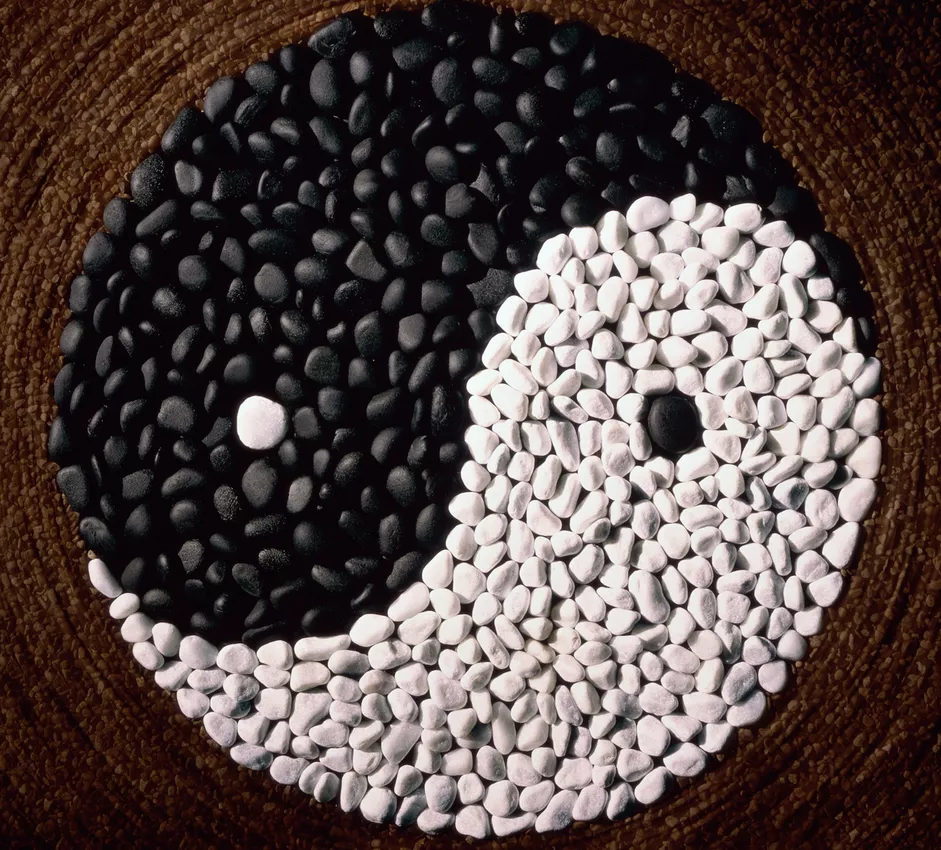
What do you think of when you think of strength? Maybe it’s a body builder or weight trainer. Maybe it’s a boxer, or a martial artist. Or maybe you think of a heavily muscled soldier wearing fatigues and holding a gun.
I’ve been ruminating a lot about strength recently, ever since I overheard a personal trainer talk about the concepts of Yin and Yang. He was saying that there should always be balance of both Yin and Yang in your life, and that’s true. But then he went further and said and that Yang symbolizes strength and power, while Yin symbolizes softness and I found myself bristling at his comments. Who says Yin lacks strength? Who says Yin can’t also be powerful?
According to traditional Chinese medicine, Yang represents the brightness, warmth, and dryness of the sun, as well as growth and hardness. By contrast, Yin represents the dark, cool, mysterious energy of the moon, as well as moistness and softness. Yang is active. Yin is passive. Yang is extroverted. Yin is introverted. But neither is more powerful than the other. Each of them is strong in their own way.
The kind of strength that Yang exudes is quick, hard, and loud. This is the strength of a soldier. It is fiery, violent and abrupt. The kind of strength that Yin exudes is slower, more deliberate and patient. This is the strength of a hard worker, who quietly does his job every day without complaint and slowly rises up the ladder of success. It’s a different kind of strength, but no less powerful.
I recently saw the film Everything Everywhere All at Once, and it is a psychedelic mind-trip of a film. At it’s climax, it elucidates the difference between a Yin action and a Yang action quite beautifully. The movie stars Michelle Yeoh as an angry and dissatisfied laundromat owner who is unhappy with her life. She is angry at her husband, who she sees as useless. She is frustrated with her daughter, who she sees as directionless. She wishes she had taken another path in life. She wishes she had made different choices.
At a turning point in the film, she accuses her husband of being too soft. Of never fighting back. In reply, he says to her:
“You think when I choose to see the good side of things, I’m being naive. But my kindness is strategic and necessary. It’s how I’ve learned to survive through everything. I know you see yourself as a fighter. Well, I see myself as one too. This is how I fight.”
And with each problem they encounter, he responds quietly and softly, with optimism, caring and kindness, while she responds with physicality and violence. While neither approach is perfect, his understanding gets them further than her anger does. Once Michelle Yeoh decides to give kindness and empathy a try, it results in a happier outcome for everyone, including herself. She ends the film smiling, despite being in the same circumstances she started in.
I wouldn’t be the first to suggest that we’ve focused a little to strongly on Yang energy in recent decades, particularly in North America. We’ve worked increasingly longer hours and then partied too hard to make up for it. Our patience has run short, and our voices have become louder and more shrill.
Like Michelle Yeoh, maybe we could learn to use our energy a little differently. Instead of competing against one another, maybe we can show one another more kindness and learn to work together. Maybe we can learn to be more thoughtful and empathetic. We have more in common than we think.
Lest you think Yin energy is too soft and slow to be effective, remember the water that carved the Grand Canyon. Yin energy may be more passive and quiet, but over time, it still packs a punch. You can call me naive, but that’s the way I fight.
About the Author: Rebecca Wong has a BA in English Literature from the University of Waterloo and has been working in the herbal business since 2000. She studied at the Ontario College of Traditional Chinese Medicine under respected authorities Paul Des Rosiers and Vu Le, and graduated from the East West School of Planetary Herbology under Michael Tierra. She received training as a yoga teacher at The Branches in Kitchener/Waterloo, and therapeutic yoga teacher training from the School for Somatic Soulwork under Deniz Aydoslu. She now teaches yoga for anxiety, depression and burnout at Rebecca's Restful Yoga Studio in Toronto.